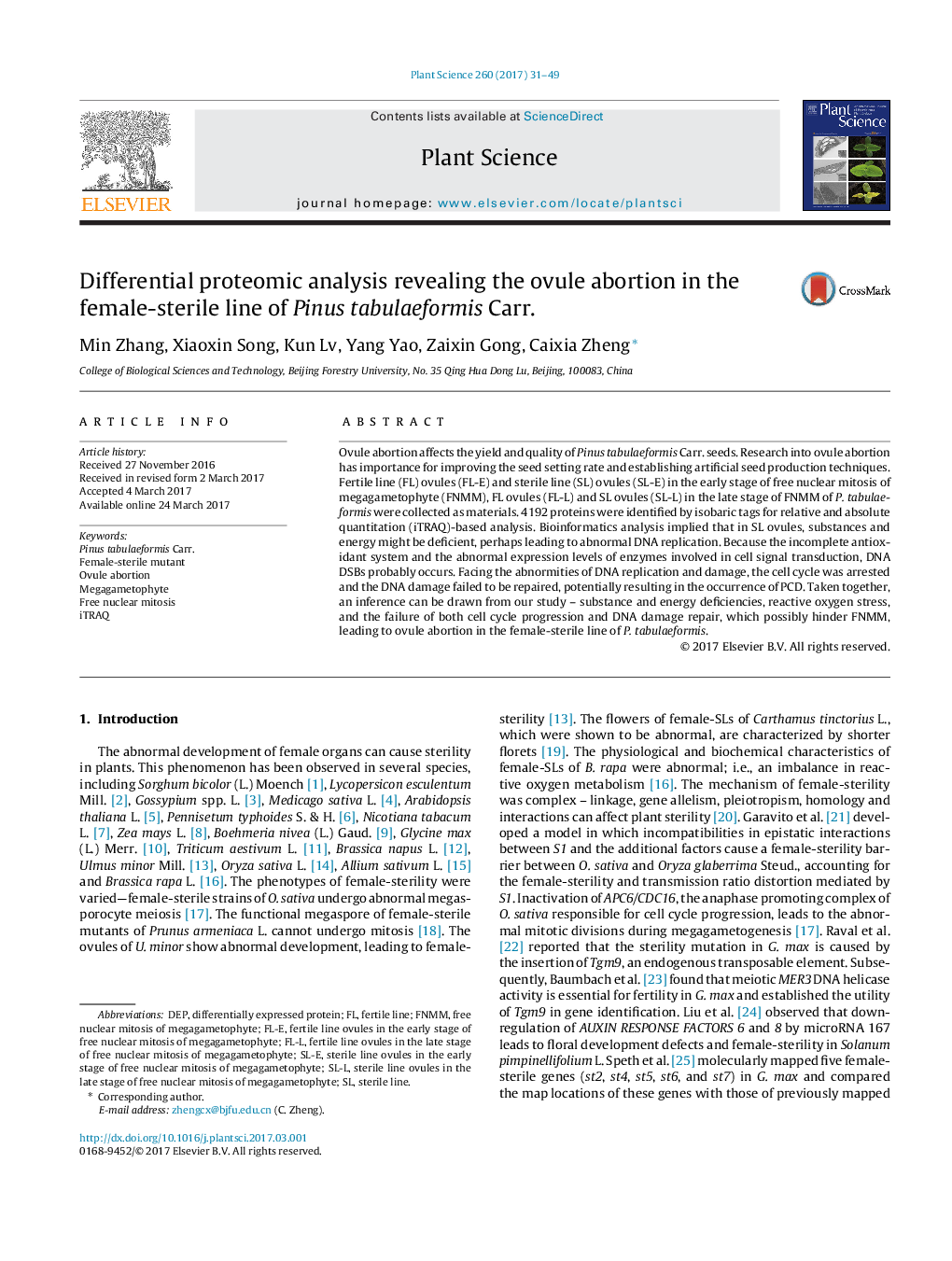| Article ID | Journal | Published Year | Pages | File Type |
|---|---|---|---|---|
| 5515696 | Plant Science | 2017 | 19 Pages |
â¢In SL ovules, substance and energy deficiencies lead to abnormal DNA replication.â¢Because the antioxidant system is malfunctioning, H2O2 accumulates.â¢Abnormal cell signal transduction results in the increasing ethylene.â¢The accumulated H2O2 and the excessive ethylene induce DNA damage.â¢SL ovules fail to repair the abnormal DNA replication and damage and abort.
Ovule abortion affects the yield and quality of Pinus tabulaeformis Carr. seeds. Research into ovule abortion has importance for improving the seed setting rate and establishing artificial seed production techniques. Fertile line (FL) ovules (FL-E) and sterile line (SL) ovules (SL-E) in the early stage of free nuclear mitosis of megagametophyte (FNMM), FL ovules (FL-L) and SL ovules (SL-L) in the late stage of FNMM of P. tabulaeformis were collected as materials. 4192 proteins were identified by isobaric tags for relative and absolute quantitation (iTRAQ)-based analysis. Bioinformatics analysis implied that in SL ovules, substances and energy might be deficient, perhaps leading to abnormal DNA replication. Because the incomplete antioxidant system and the abnormal expression levels of enzymes involved in cell signal transduction, DNA DSBs probably occurs. Facing the abnormities of DNA replication and damage, the cell cycle was arrested and the DNA damage failed to be repaired, potentially resulting in the occurrence of PCD. Taken together, an inference can be drawn from our study - substance and energy deficiencies, reactive oxygen stress, and the failure of both cell cycle progression and DNA damage repair, which possibly hinder FNMM, leading to ovule abortion in the female-sterile line of P. tabulaeformis.
